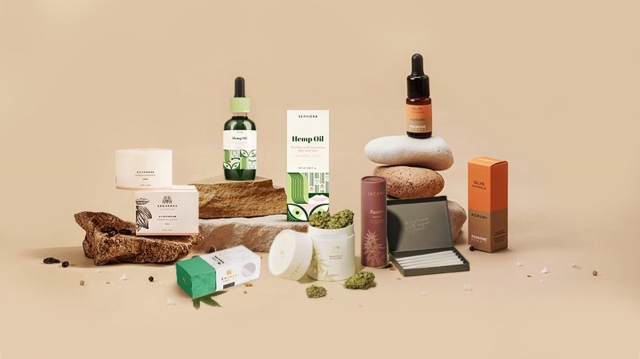The world is constantly seeking innovative and sustainable alternatives to traditional packaging materials, and hemp has emerged as a front-runner in this arena. Hemp packaging boxes are gaining popularity among businesses and consumers alike due to their eco-friendly properties, durability, and versatility. These boxes offer a green solution to the problem of excessive waste from traditional packaging and are a perfect example of how nature can meet the needs of modern commerce.
What Are Hemp Packaging Boxes?
Hemp packaging boxes are containers made from fibers derived from the hemp plant, a fast-growing and highly sustainable crop. Hemp fibers are used to produce a range of biodegradable and recyclable materials, including paper, textiles, and packaging. These fibers are processed and transformed into sturdy, high-quality boxes suitable for a variety of uses. Hemp packaging is especially popular in industries focused on sustainability, such as organic food, cosmetics, and environmentally conscious brands.
The Environmental Benefits of Hemp Packaging
One of the biggest advantages of using hemp packaging boxes is their minimal environmental impact. Here are a few key environmental benefits:
-
Biodegradability and Recyclability: Unlike traditional plastic packaging that can take centuries to decompose, hemp packaging boxes are biodegradable. When discarded, they break down naturally within a few months, returning nutrients back to the soil. Additionally, these boxes are recyclable, which means they can be reused to create new packaging materials, reducing the need for virgin resources.
-
Low Carbon Footprint: Hemp is a carbon-negative crop, meaning it absorbs more CO2 from the atmosphere during its growth than it releases. This makes hemp an excellent choice for reducing the carbon footprint of packaging. Moreover, the production process for hemp-based materials is less energy-intensive compared to plastic or even some types of paper, further decreasing greenhouse gas emissions.
-
Reduced Dependence on Wood: The production of traditional paper and packaging heavily relies on trees, leading to deforestation and habitat destruction. Hemp grows rapidly and produces more fiber per acre than trees, making it a sustainable alternative. Using hemp for packaging reduces the pressure on forests and helps conserve biodiversity.
Durability and Versatility of Hemp Packaging Boxes
Aside from being eco-friendly, hemp packaging boxes are known for their strength and versatility. Hemp fibers are incredibly durable, making these boxes resistant to wear and tear. This strength allows them to hold a wide range of products, from delicate items like cosmetics and food products to heavier goods. The robust nature of hemp fibers ensures that products remain protected during transit, reducing the risk of damage.
Hemp packaging boxes can also be customized to meet the specific needs of a business. They can be printed with brand logos, colors, and other design elements, making them ideal for creating a cohesive brand image. The versatility of hemp packaging extends to its usability in different sectors, including retail, e-commerce, and even specialty industries like cannabis and CBD products.
Economic Advantages for Businesses
In addition to the environmental and functional benefits, hemp packaging boxes offer significant economic advantages to businesses:
-
Cost Efficiency in the Long Run: Although the initial cost of hemp packaging may be higher than conventional packaging, the long-term benefits can offset the investment. The durability of hemp boxes means fewer replacements and reduced costs associated with damaged goods. Moreover, the growing demand for sustainable packaging options allows businesses to position themselves as eco-conscious, which can attract environmentally-minded consumers and boost sales.
-
Enhanced Brand Reputation: Consumers are increasingly aware of the environmental impact of their purchasing choices. By opting for hemp packaging, businesses can enhance their brand reputation and demonstrate a commitment to sustainability. This can lead to increased customer loyalty and positive brand perception, helping businesses differentiate themselves in a competitive market.
-
Compliance with Environmental Regulations: With governments and regulatory bodies around the world tightening regulations around waste management and plastic usage, hemp packaging boxes can help businesses stay compliant with new environmental standards. This ensures that companies can avoid fines and other penalties while actively contributing to the global effort to reduce plastic waste.
Challenges in Adopting Hemp Packaging
While hemp packaging boxes offer many advantages, there are some challenges that businesses need to consider:
-
Availability and Supply Chain: The supply chain for hemp-based materials is not as developed as that of traditional packaging materials like plastic and cardboard. This can sometimes lead to limited availability or higher costs, especially for small businesses. However, as demand for hemp products grows, the industry is expected to expand, improving accessibility and reducing costs over time.
-
Higher Initial Costs: As mentioned earlier, the initial cost of hemp packaging can be higher compared to traditional packaging options. This can be a barrier for businesses operating with tight margins or those that require large quantities of packaging. However, many companies find that the long-term savings and marketing advantages justify the initial investment.
-
Consumer Awareness: Despite the increasing popularity of sustainable packaging, there is still a need to educate consumers about the benefits of hemp packaging. Businesses that invest in hemp boxes should also focus on communication strategies that highlight their eco-friendly choices, helping consumers understand the value of supporting such initiatives.
The Future of Hemp Packaging Boxes
As awareness about the environmental impact of plastic waste continues to grow, more industries are turning to sustainable alternatives like hemp packaging boxes. The future looks promising for this innovative material, with advancements in production technology and an expanding global market. As supply chains improve and economies of scale come into play, the costs associated with hemp packaging are likely to decrease, making it an even more accessible option for businesses of all sizes.
In addition, ongoing research into the potential uses of hemp fibers could lead to new applications beyond just packaging. From textiles to building materials, hemp is proving itself as a versatile crop that can contribute to a greener future.
Conclusion
Hemp packaging boxes represent a significant step forward in the quest for sustainable packaging solutions. They offer a combination of environmental benefits, durability, and economic advantages that make them a viable choice for forward-thinking businesses. While challenges like initial costs and supply chain limitations exist, the long-term benefits make hemp packaging a worthy investment for companies looking to reduce their environmental footprint and appeal to eco-conscious consumers. By embracing hemp packaging, businesses can play a crucial role in the transition towards a more sustainable and environmentally friendly world.






